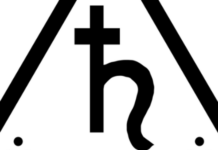The chaote is free to adopt any system (s)he so pleases and deconstruct it on whim. It is generally considered taboo for any chaote to develop any sort of personal dogma. I thereby call into question the doctrine of personality and its implications. I posit that the personality is as undefined and arbitrary as “god”, “spirit” and “love”. Since these are left entirely for the individual (or not-so-individual) to interpret as they please or are told, i recommend another approach to the socio-religious status quo, and namely Judeo-Christianity. This approach is encouraged in the interest of originality and inclusion, useful qualities for any chaote.
“Self” remains as undefined as “God”, and is equally arbitrary in definition and significance. Although personality can be defined as the collective character, behavioural, temperamental, emotional, and mental traits of a person, the bases of such – thought and emotion – remain only classifications of experience, not definitions. It is therefore belief only that defines the personality. Time and experience, the fundaments of memory, which is possibly the single most important factor in the development of personality, are not static. It is absurd, then, to assume that the product of such ever-changing conditions should be anything but impermanent and malleable. Personality is little more than a doctrine, a set of beliefs that one has adopted to differentiate their self from others. This dogma is developed around mostly inescapable experiences but is entirely open to re-interpretation as any other belief system.
It is easily argued that originality itself is an illusion. This remains undisputed here. There is nothing new under the sun. However, there is much to be said for deciding one’s own order – or disorder – of reality rather than ignorantly accepting any of the provided options. There is also much to be said for advancing one’s own likes rather than digressing on dislikes. Those who do are usually considered “original”, or at least “strange”, and thus have a particular if illusory claim to uniqueness.
Those who merely criticise and attack what they do not like are unoriginal. They have created nothing; they are merely reacting to what someone else has done. Furthermore, to utterly dismiss any paradigm on the basis of personal preferences is to assume that the personality is absolute. Thus, those who can not or will not at any time adopt any particular view on any topic presuppose two dogmatic truths: 1. Their personality is an absolute truth that cannot change. 2. The particular view in question remains absolutely irreconcilable (does not change) with their personality.
“Nothing is true; all is permitted” (Hassan I Sabbah). This paradoxical credo (that it would remain undisputed is also paradoxical) of the chaote demands that the very self be called into question. Since there is no such thing as a True Self or personality, one is free to explore all that was previously believed unacceptable for whatever reason, and is encouraged to do so. In the context of North Americn (Western) society, this typically results in exploring so-called alternative paths and the occult. However, this is a one-sided approach that excludes a wide variety of options. By ignoring or directly attacking the socio-religious status quo, and namely Judeo-Christianity, one originates nothing but merely reacts to what others have already established, and furthermore confirms unquestioned faith in the doctrine of “self”. In doing so, one remains as equally limited as if bound to meet the requirements of that status quo. This reflects poorly on the very basis of chaoism.
Christians limit themselves by considering their theology the only truth and refusing to explore other faiths and ideas, and are thus considered closed-minded. Likewise chaotes, who suppose a larger degree of freedom in the ability to choose whatever works, invariably limit themselves by refusing any serious inquiry into Christianity. To assume the meta-belief that belief itself is a tool for achieving effects but not allow oneself the option to explore all the tools available is to presuppose a truth (the personality) and incur a specialization that may ultimately hinder the effects desired. Thus inclusiveness becomes a desirable quality for anyone who wishes to maintain as much potential as possible.
Inclusion suggests, indeed, that nothing is true–not even the self. Incorporating Crowley’s Qabalah and Spare’s sigilisation into one’s personal grimoire is no measure of originality; not only is it adopting pre-set formulae with historical credibility, it is appropriating some of the most common occult alternatives to the Judeo-Christian paradigm. Taking on Emperor Haile Selassie I as one’s personal deity while adopting a Sikh mindset and using Islam’s jinns for servitors, on the other hand, could be something original and interesting. Moreover, inventing systems of philosophy and magick that are in no way related to any other system (eg, no astrology, no gematria, no sigils) would seem an ideal exercise for the aspiring chaos magickian. All in all, one should not be so constrained by their doctrine of personality as to explore only that which is obscure or unpopular.
It is therefore in the chaote’s best interest to retain Judeo-Christianity in the catalogue of possibly useful paradigms.
Copyright 2002. saintstephen. Permission to reproduce this article granted under the condition that this copyright notice is included.







